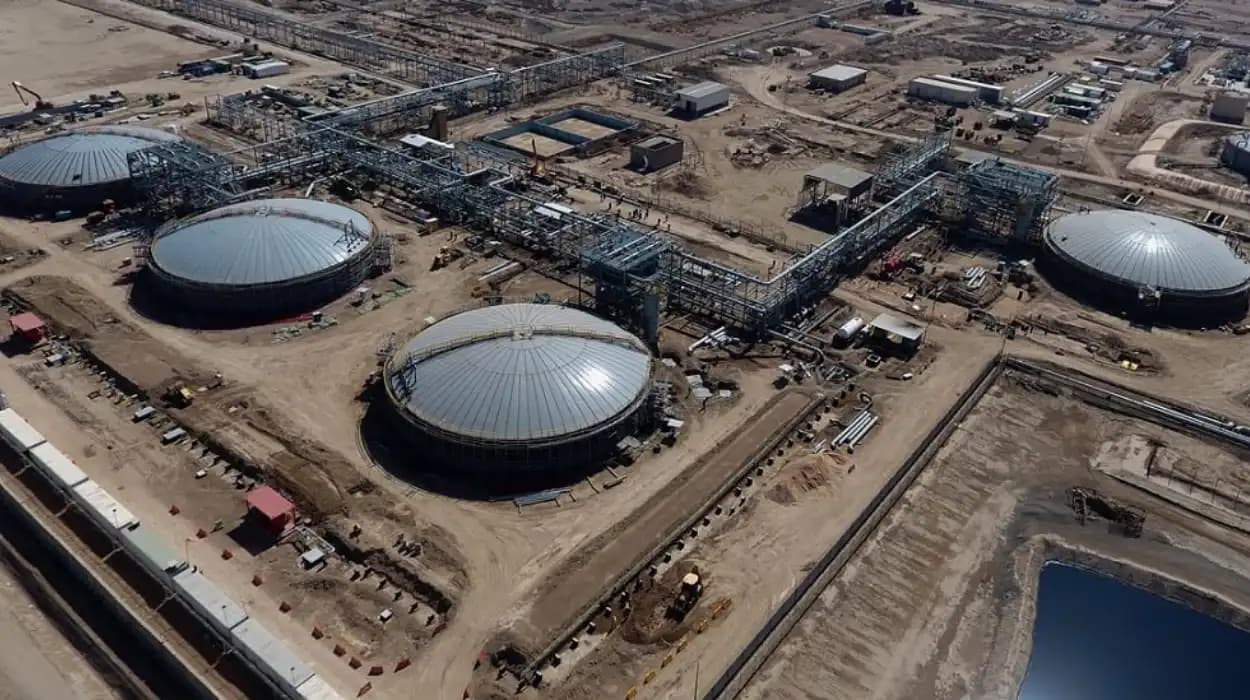Executive Summary:
Iraq’s oil exports to the United States exceeded 6 million barrels in June 2025, marking a significant increase in trade volume. This milestone reflects Iraq’s expanding role as a key oil supplier to the US market amid shifting global energy dynamics.
Significance of Iraq’s oil exports surpassing 6 million barrels to the US
As reported by multiple industry sources, Iraq’s oil shipments to the United States reached over 6 million barrels in June 2025, highlighting a notable surge in crude oil trade between the two countries. This volume surpasses previous monthly export figures and underscores Iraq’s growing importance as a reliable oil supplier to the US, which is seeking to diversify its energy sources amid geopolitical tensions and market fluctuations.
This milestone is significant because it demonstrates Iraq’s capacity to meet increasing demand from one of the world’s largest oil consumers. The increase also reflects broader trends in global oil markets where Middle Eastern producers are capitalising on favourable pricing and logistics to expand their export footprints.
How did Iraq achieve this increase in oil exports?
According to industry analysts, Iraq has ramped up production and streamlined export logistics to facilitate higher volumes of crude oil shipments. Enhanced infrastructure at key ports and export terminals, coupled with stable production levels from major oil fields, have enabled Iraq to meet the rising demand from the US market.
Additionally, Iraq’s strategic partnerships with international oil companies and favourable agreements with US importers have played a crucial role in boosting exports. These collaborations have ensured consistent supply chains and competitive pricing, making Iraqi crude attractive to US refiners.
What impact does this have on the US energy market?
The increase in Iraqi oil exports provides the US with a more diversified supply base, reducing reliance on other regions that may be subject to political instability or supply disruptions. This diversification is critical for US energy security and market stability.
Furthermore, the availability of Iraqi crude, known for its quality and competitive pricing, supports US refiners in meeting domestic demand and export commitments. It also contributes to stabilising fuel prices for consumers and industries across the US.
Broader geopolitical implications
The growing oil trade between Iraq and the US reflects deepening economic ties amid complex geopolitical dynamics in the Middle East. Iraq’s ability to increase exports to the US strengthens its position as a key energy player and may influence regional alliances and energy diplomacy.
For the US, securing steady oil supplies from Iraq aligns with its strategic interests in maintaining influence in the Middle East and ensuring energy market stability. This relationship may also impact US policies regarding regional security and economic cooperation.
What challenges could affect future exports?
While the June 2025 export figures are promising, several challenges could impact future volumes. These include potential political instability within Iraq, fluctuations in global oil prices, and competition from other oil-producing nations.
Infrastructure constraints or disruptions at export terminals, as well as evolving US energy policies focused on renewable sources, could also influence the trajectory of Iraqi oil exports to the US.
What does this mean going forward?
Iraq’s surpassing of 6 million barrels in oil exports to the US in June 2025 marks a milestone in bilateral energy trade, reflecting Iraq’s enhanced production capabilities and strategic importance. For the US, this development offers greater supply security and market diversification.
Both countries stand to benefit from continued cooperation, although they must navigate geopolitical and market challenges to sustain and grow this trade relationship. The evolving energy landscape will require adaptive strategies to maintain the momentum achieved in June 2025.
